

Our Courses

Calculating Descriptive Statistics in R
Welcome to this 2-hour long project-based course Calculating Descriptive Statistics in R. In this project, you will learn how to perform extensive descriptive statistics on both quantitative and qualitative variables in R. You will also learn how to calculate the frequency and percentage of categorical variables and check the distribution of quantitative variables.
-
Course by

-
 Self Paced
Self Paced
-
 3 hours
3 hours
-
 English
English

Supervised Machine Learning: Classification
This course introduces you to one of the main types of modeling families of supervised Machine Learning: Classification. You will learn how to train predictive models to classify categorical outcomes and how to use error metrics to compare across different models.
-
Course by

-
 Self Paced
Self Paced
-
 25 hours
25 hours
-
 English
English

AI Workflow: Business Priorities and Data Ingestion
This is the first course of a six part specialization. You are STRONGLY encouraged to complete these courses in order as they are not individual independent courses, but part of a workflow where each course builds on the previous ones. This first course in the IBM AI Enterprise Workflow Certification specialization introduces you to the scope of the specialization and prerequisites. Specifically, the courses in this specialization are meant for practicing data scientists who are knowledgeable about probability, statistics, linear algebra, and Python tooling for data science and ma
-
Course by

-
 Self Paced
Self Paced
-
 8 hours
8 hours
-
 English
English

Materials Data Sciences and Informatics
This course aims to provide a succinct overview of the emerging discipline of Materials Informatics at the intersection of materials science, computational science, and information science. Attention is drawn to specific opportunities afforded by this new field in accelerating materials development and deployment efforts. A particular emphasis is placed on materials exhibiting hierarchical internal structures spanning multiple length/structure scales and the impediments involved in establishing invertible process-structure-property (PSP) linkages for these materials.
-
Course by

-
 Self Paced
Self Paced
-
 9 hours
9 hours
-
 English
English

Tools for Exploratory Data Analysis in Business
This course introduces several tools for processing business data to obtain actionable insight. The most important tool is the mind of the data analyst. Accordingly, in this course, you will explore what it means to have an analytic mindset. You will also practice identifying business problems that can be answered using data analytics. You will then be introduced to various software platforms to extract, transform, and load (ETL) data into tools for conducting exploratory data analytics (EDA).
-
Course by

-
 Self Paced
Self Paced
-
 19 hours
19 hours
-
 English
English

Fundamentals of Machine Learning in Finance
The course aims at helping students to be able to solve practical ML-amenable problems that they may encounter in real life that include: (1) understanding where the problem one faces lands on a general landscape of available ML methods, (2) understanding which particular ML approach(es) would be most appropriate for resolving the problem, and (3) ability to successfully implement a solution, and assess its performance.
-
Course by

-
 Self Paced
Self Paced
-
 18 hours
18 hours
-
 English
English

Organization Planning and Development for the 6 σ Black Belt
This course is designed for professionals interested in learning the principles of Lean Sigma, the DMAIC process and DFSS. This course is number 1 of 8 in this specialization dealing with topics in Organization Planning and Development. Professionals with some completed coursework in statistics and a desire to drive continuous improvement within their organizations would find this course and the others in this specialization appealing. Method of assessment consists of several formative and summative quizzes and a multi-part peer reviewed project completion regiment.
-
Course by

-
 Self Paced
Self Paced
-
 English
English

Statistical Thinking for Industrial Problem Solving, presented by JMP
Statistical Thinking for Industrial Problem Solving is an applied statistics course for scientists and engineers offered by JMP, a division of SAS. By completing this course, students will understand the importance of statistical thinking, and will be able to use data and basic statistical methods to solve many real-world problems.
-
Course by

-
 Self Paced
Self Paced
-
 44 hours
44 hours
-
 English
English

Statistics for Marketing
This course takes a deep dive into the statistical foundation upon which marketing analytics is built. The first part of this course will help you to thoroughly understand your dataset and what the data actually means. Then, it will go into sampling including how to ask specific questions about your data and how to conduct analysis to answer those questions.
-
Course by

-
 Self Paced
Self Paced
-
 17 hours
17 hours
-
 English
English
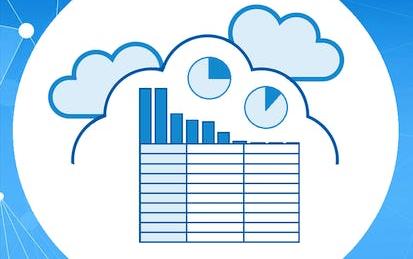
Using Query Store in Azure
In this 1-hour long project-based course, you will learn how to (create Azure SQL Server database from Azure portal and with Data Migration Assistant, recognize regressed queries using Query Store and determine top resource consuming queries, get query wait statistics and queries with high variation).
-
Course by

-
 Self Paced
Self Paced
-
 2 hours
2 hours
-
 English
English

Probability Theory: Foundation for Data Science
Understand the foundations of probability and its relationship to statistics and data science. We’ll learn what it means to calculate a probability, independent and dependent outcomes, and conditional events. We’ll study discrete and continuous random variables and see how this fits with data collection. We’ll end the course with Gaussian (normal) random variables and the Central Limit Theorem and understand its fundamental importance for all of statistics and data science. This course can be taken for academic credit as part of CU Boulder’s Master of Science in Data Science
-
Course by

-
 Self Paced
Self Paced
-
 48 hours
48 hours
-
 English
English

Pre-MBA Quantitative Skills: Data Analysis
This course will equip students with the quantitative skills needed to begin any Masters of Business Administration program. The goal is not to build foundational skills or expert mastery but rather, to provide some middle ground to “shake the rust off” skills that a typical MBA student probably knows, but may not have thought about for quite some time. The course provides a quick refresher on top level math and statistics concepts that will be used throughout the MBA curriculum at any school. All of the concepts will be reinforced with practical real-world examples.
-
Course by

-
 Self Paced
Self Paced
-
 19 hours
19 hours
-
 English
English

Power and Sample Size for Multilevel and Longitudinal Study Designs
Power and Sample Size for Longitudinal and Multilevel Study Designs, a five-week, fully online course covers innovative, research-based power and sample size methods, and software for multilevel and longitudinal studies. The power and sample size methods and software taught in this course can be used for any health-related, or more generally, social science-related (e.g., educational research) application. All examples in the course videos are from real-world studies on behavioral and social science employing multilevel and longitudinal designs.
-
Course by

-
 Self Paced
Self Paced
-
 19 hours
19 hours
-
 English
English

Statistical Inference for Estimation in Data Science
This course introduces statistical inference, sampling distributions, and confidence intervals. Students will learn how to define and construct good estimators, method of moments estimation, maximum likelihood estimation, and methods of constructing confidence intervals that will extend to more general settings. This course can be taken for academic credit as part of CU Boulder’s Master of Science in Data Science (MS-DS) degree offered on the Coursera platform.
-
Course by

-
 Self Paced
Self Paced
-
 28 hours
28 hours
-
 English
English
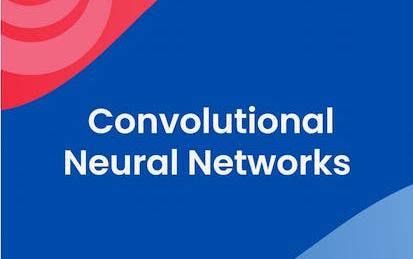
Natural Language Processing with Attention Models
In Course 4 of the Natural Language Processing Specialization, you will: a) Translate complete English sentences into Portuguese using an encoder-decoder attention model, b) Build a Transformer model to summarize text, c) Use T5 and BERT models to perform question-answering. By the end of this Specialization, you will have designed NLP applications that perform question-answering and sentiment analysis, and created tools to translate languages and summarize text! Learners should have a working knowledge of machine learning, intermediate Python including experience with a deep learning fra
-
Course by

-
 Self Paced
Self Paced
-
 35 hours
35 hours
-
 English
English

Bayesian Statistics: From Concept to Data Analysis
This course introduces the Bayesian approach to statistics, starting with the concept of probability and moving to the analysis of data. We will learn about the philosophy of the Bayesian approach as well as how to implement it for common types of data. We will compare the Bayesian approach to the more commonly-taught Frequentist approach, and see some of the benefits of the Bayesian approach. In particular, the Bayesian approach allows for better accounting of uncertainty, results that have more intuitive and interpretable meaning, and more explicit statements of assumptions.
-
Course by

-
 Self Paced
Self Paced
-
 12 hours
12 hours
-
 English
English

Summary Statistics in Public Health
Biostatistics is the application of statistical reasoning to the life sciences, and it is the key to unlocking the data gathered by researchers and the evidence presented in the scientific literature. In this course, we'll focus on the use of statistical measurement methods within the world of public health research. Along the way, you'll be introduced to a variety of methods and measures, and you'll practice interpreting data and performing calculations on real data from published studies.
-
Course by

-
 Self Paced
Self Paced
-
 15 hours
15 hours
-
 English
English

Predictive Modeling and Machine Learning with MATLAB
In this course, you will build on the skills learned in Exploratory Data Analysis with MATLAB and Data Processing and Feature Engineering with MATLAB to increase your ability to harness the power of MATLAB to analyze data relevant to the work you do. These skills are valuable for those who have domain knowledge and some exposure to computational tools, but no programming background.
-
Course by

-
 Self Paced
Self Paced
-
 22 hours
22 hours
-
 English
English

Probabilistic Deep Learning with TensorFlow 2
Welcome to this course on Probabilistic Deep Learning with TensorFlow! This course builds on the foundational concepts and skills for TensorFlow taught in the first two courses in this specialisation, and focuses on the probabilistic approach to deep learning. This is an increasingly important area of deep learning that aims to quantify the noise and uncertainty that is often present in real world datasets.
-
Course by

-
 Self Paced
Self Paced
-
 53 hours
53 hours
-
 English
English
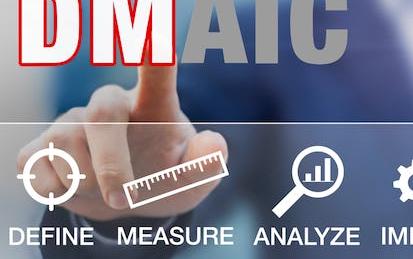
Six Sigma Advanced Define and Measure Phases
This course is for you if you are looking to dive deeper into Six Sigma or strengthen and expand your knowledge of the basic components of green belt level of Six Sigma and Lean. Six Sigma skills are widely sought by employers both nationally and internationally. These skills have been proven to help improve business processes and performance.
-
Course by

-
 Self Paced
Self Paced
-
 15 hours
15 hours
-
 English
English

Basic Statistics
Understanding statistics is essential to understand research in the social and behavioral sciences. In this course you will learn the basics of statistics; not just how to calculate them, but also how to evaluate them. This course will also prepare you for the next course in the specialization - the course Inferential Statistics. In the first part of the course we will discuss methods of descriptive statistics. You will learn what cases and variables are and how you can compute measures of central tendency (mean, median and mode) and dispersion (standard deviation and variance).
-
Course by

-
 Self Paced
Self Paced
-
 27 hours
27 hours
-
 English
English
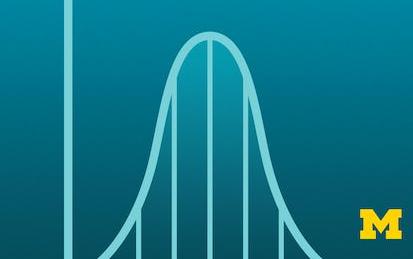
Understanding and Visualizing Data with Python
In this course, learners will be introduced to the field of statistics, including where data come from, study design, data management, and exploring and visualizing data. Learners will identify different types of data, and learn how to visualize, analyze, and interpret summaries for both univariate and multivariate data.
-
Course by

-
 Self Paced
Self Paced
-
 21 hours
21 hours
-
 English
English

Foundations of Data Science: K-Means Clustering in Python
Organisations all around the world are using data to predict behaviours and extract valuable real-world insights to inform decisions. Managing and analysing big data has become an essential part of modern finance, retail, marketing, social science, development and research, medicine and government. This MOOC, designed by an academic team from Goldsmiths, University of London, will quickly introduce you to the core concepts of Data Science to prepare you for intermediate and advanced Data Science courses.
-
Course by

-
 Self Paced
Self Paced
-
 29 hours
29 hours
-
 English
English

Bayesian Statistics: Mixture Models
Bayesian Statistics: Mixture Models introduces you to an important class of statistical models. The course is organized in five modules, each of which contains lecture videos, short quizzes, background reading, discussion prompts, and one or more peer-reviewed assignments. Statistics is best learned by doing it, not just watching a video, so the course is structured to help you learn through application. Some exercises require the use of R, a freely-available statistical software package.
-
Course by

-
 Self Paced
Self Paced
-
 22 hours
22 hours
-
 English
English
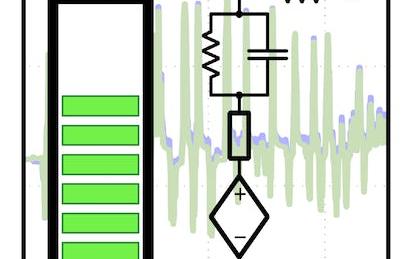
State Estimation and Localization for Self-Driving Cars
Welcome to State Estimation and Localization for Self-Driving Cars, the second course in University of Toronto’s Self-Driving Cars Specialization. We recommend you take the first course in the Specialization prior to taking this course. This course will introduce you to the different sensors and how we can use them for state estimation and localization in a self-driving car.
-
Course by

-
 Self Paced
Self Paced
-
 27 hours
27 hours
-
 English
English



